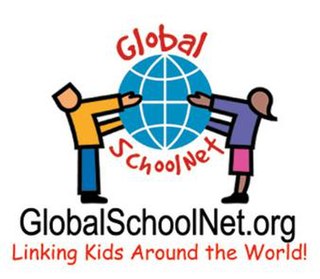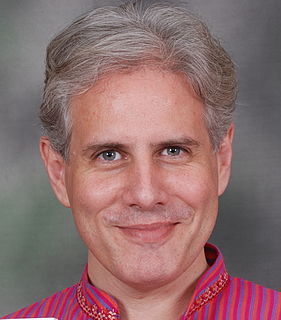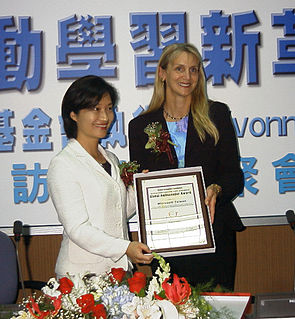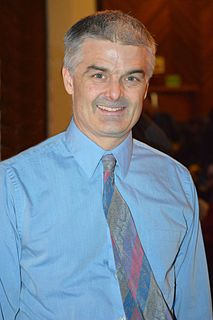Educational games are games explicitly designed with educational purposes, or which have incidental or secondary educational value. All types of games may be used in an educational environment. Educational games are games that are designed to help people to learn about certain subjects, expand concepts, reinforce development, understand a historical event or culture, or assist them in learning a skill as they play. Game types include board, card, and video games. An educational game is a game designed to teach humans about a specific subject and to teach them a skill. As educators, governments, and parents realize the psychological need and benefits of gaming have on learning, this educational tool has become mainstream. Games are interactive play that teach us goals, rules, adaptation, problem solving, interaction, all represented as a story. They satisfy our fundamental need to learn by providing enjoyment, passionate involvement, structure, motivation, ego gratification, adrenaline, creativity, social interaction and emotion in the game itself while the learning takes place.

Open educational resources (OER) are freely accessible, openly licensed text, media, and other digital assets that are useful for teaching, learning, and assessing as well as for research purposes. There is no universal usage of open file formats in OER.

BrainPop is a group of educational websites with over 1,000 short animated movies for students in grades K-12, together with quizzes and related materials, covering the subjects of science, social studies, English, mathematics, engineering and technology, health, and arts and music. BrainPop is used in more than 20% of U.S. schools and also offers subscriptions for families and homeschoolers. It is also used in schools in Mexico, France, Spain, Israel and several other countries, where it offers videos in local languages that are designed for students in those countries. BrainPop is available by subscription but has some free content, including a movie of the day, several free movies from each topic area, educators materials, including lesson plans, and an extensive library of educational games called GameUp. Its free smartphone and tablet application accesses BrainPop's free and subscription content.
Educational technology is "the study and ethical practice of facilitating learning and improving performance by creating, using, and managing appropriate technological processes and resources".
CyberARTS is a multi-disciplinary, integrated six-year arts and technology specialized program which is offered in a number of schools in Toronto for grade 7 to 12 students in Ontario, Canada. The CyberARTS program has been honoured by Maclean's magazine as one of the best programs in Canada. Many international delegates come from the UK, Spain, the United States and China to study the unique model of this program. In addition to learning art, design, and technology, the students are also taught about important skills such as organization, work ethic, presentation skills, professionalism, career building and post-secondary planning.
An edublog is a blog created for educational purposes. Edublogs archive and support student and teacher learning by facilitating reflection, questioning by self and others, collaboration and by providing contexts for engaging in higher-order thinking. Edublogs proliferated when blogging architecture became more simplified and teachers perceived the instructional potential of blogs as an online resource. The use of blogs has become popular in education institutions including public schools and colleges. Blogs can be useful tools for sharing information and tips among co-workers, providing information for students, or keeping in contact with parents. Common examples include blogs written by or for teachers, blogs maintained for the purpose of classroom instruction, or blogs written about educational policy. Educators who blog are sometimes called edubloggers.
Dennis Harper is founder and CEO of Generation YES, and active in the field of technology education. He was instrumental in the development of the Liberian Renaissance Education Complex.

Ali Jafari Persian: علی جعفری),) the Founder and CEO of http://theCN.com is a serial entrepreneur who is well known for his research and entrepreneurship in the area of Information Technology (IT), more specifically, on development of a series of Learning Management System (LMS). Dr. Jafari's achievements in the development of concepts and technology systems in Learning Management Systems (LMS) have earned him recognition as one of Indiana's leading high-tech success stories and a global unofficial title of father of LMS. Jafari is considered as one of the global pioneers in envisioning and developing new eLearning systems and pedagogical methods https://inventors.iu.edu/inventors/jafari-ali.html. Ali Jafari is currently working as a Professor of Computer and Information Technology at the Purdue School of Engineering and Technology and as the Director of the CyberLab at Indiana University-Purdue University Indianapolis (IUPUI). He earned his BS in Business Administration from the University of Isfahan, Iran, before he moved to the United States to pursue a MS in Media Technology at the University of Wisconsin. He completed his doctorate studies in Telecommunications and Mass Communication from Indiana University in Bloomington, Indiana.

This National Conference is the biennial conference of the Australian Council for Computers in Education (ACCE). The conference brings together educators from across Australia and around the world who are interested in the use of information and communication technologies to support and enhance teaching and learning in school classrooms, as opposed to a focus on its use in higher education, or school administration.

Don Krug was an educator, activist, and author.

The Joan Ganz Cooney Center is an independent, non-profit, non-partisan research and innovation group founded by Sesame Workshop in order to advance children's literacy skills and foster innovation in children's learning through digital media.

Launched in 2000, Esri's Education User Conference (EdUC), is organized and hosted by Esri's Educational Programs Team the weekend before the annual Esri International User Conference. Held in San Diego, California, during the month of July, the mission of the EdUC is to support and promote the use of geographic information systems (GIS) in educational research, instruction, administration, and policy.

Global SchoolNet (GSN) is a nonprofit 501(c)3 international educational organization that serves as a clearinghouse for collaborative educational projects, many that are based on the Constructivist Learning model. The organization coordinates projects and competitions focused on humanitarian issues, diplomacy, leadership, innovative teaching, entrepreneurship, STEM, and other academics for schools and youth organizations internationally. About 150,000 educators from 194 countries have registered as members of Global SchoolNet, and about 5 million students from 109 countries have participated in GSN projects as of 2018. Global SchoolNet is well known for two international competitions, the International CyberFair for students in grades kindergarten through high school, and the U.S. State Department-sponsored Doors to Diplomacy for ages 12 through 19. Global SchoolNet was established in 1984 as Free Educational Mail (FrEdMail) in San Diego, California, where its headquarters still exists.

Steven Paul Rudolph is an American educator, author and public speaker based in India. He is the proponent of a novel concept in education called Multiple Natures, which is a psychological framework that helps in understanding people’s natures and personality traits that result in particular behavioral patterns, specifically related to learning and work.

Dr. Yvonne Marie Andrés is an American educator who is recognized as an e-learning pioneer and visionary. Andrés is the co-founder of the non-profit Global SchoolNet (1984) and the founder of the Global Schoolhouse (1992). Andrés was named one of the 25 most influential people worldwide in education technology and was invited to meet with President Bush to launch the Friendship Through Education initiative (2000). Andrés is the creator and producer of International CyberFair and the US State Department’s Doors to Diplomacy program. Andrés frequently writes about highly effective education programs from around the globe that blend online and offline learning, while incorporating the latest neuroplasticity findings and Constructivist Learning methodology. Andrés has provided leadership throughout the US, Canada, Asia, Europe, Australia, South America and Africa and in 2007 Andrés was awarded the Soroptimist International Making a Difference Award for advancing the status of women and children. In August 2012 Andrés was selected as one of San Diego Magazine's Women Who Move the City, recognizing dynamic women who create positive change and contribute to the community.

David Warlick is an educator, author, programmer, and public speaker. An early adopter and promoter of technology in the classroom, Warlick has taught and written about technology integration and school curriculum for more than 30 years. He has also developed instructional software and interactive Web sites to support teachers and students in using computers and the Internet for education.

Jon (Jonathan) Bergmann is a chemistry teacher and one of the developers of the "flipped classroom" model of teaching along with fellow chemistry teacher Aaron Sams. Although already noted for his teaching, Bergmann decided to "flip" what students did in his classes, watching video lectures at home and doing exercises (homework) in class under supervision. He and Sams not only found that grades went up, they also found time for other types of activities, which Bergmann states is more important than the videos. Bergmann has since became the lead technology facilitator for a school in Illinois, and has worked to promote the models speaking at schools, universities and more both in the United States and abroad.

The International Society for Technology in Education (ISTE) is a nonprofit organization that serves educators interested in the use of technology in education. ISTE serves more than 100,000 education stakeholders throughout the world through individual and organizational membership and support services. ISTE provides educational technology resources to support professional learning for educators and education leaders, including the ISTE Conference & Expo—a worldwide comprehensive ed tech event, and the widely adopted ISTE Standards for learning, teaching and leading with technology. ISTE also provides a suite of professional learning resources to members, including webinars, online courses, consulting services, books, and peer-reviewed journals and publications.
One of the defining features of development today is the relationship between education and technology, stimulated by the spectacular growth in internet connectivity and mobile penetration. We live in a connected world. An estimated 40% of the world’s population now uses the internet and this number is growing at a remarkable rate. While there are significant variations in internet connectivity among countries and regions, the number of households with such links in the global South has now overtaken those in the global North. Moreover, over 70% of mobile telephone subscriptions worldwide are now in the global South. Five billion people are expected to go from no to full connectivity within the next twenty years. However, there are still significant gaps among countries and regions, for example between urban and rural areas. Limited broadband speed and lack of connectivity hamper access to knowledge, participation in society and economic development.














